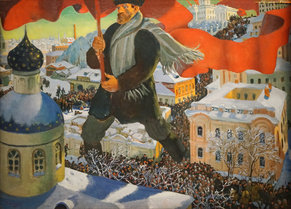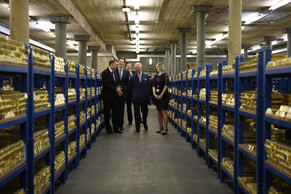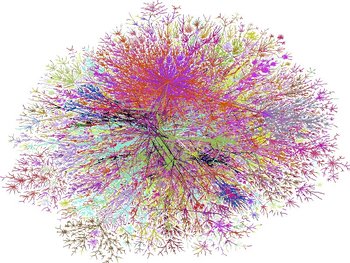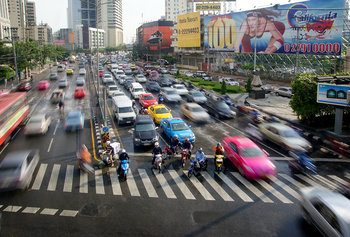
Public Enterprise
Public enterprise is the defining characteristic of a mixed economy whereby the government runs profit seeking firms in competition with private firms. For example, a nation that owns or effectively controls a national airline that competes with the private airlines of other nations on multiple routes.Natural Monopolies
Natural monopolies are services that are inherently provided by a single firm without competition. For example, the water service to homes in a city. These are the most common area for public enterprises because it may be in the interests of a population not to allow private firms to own natural monopolies as it would be too easy to charge high prices and offer a poor quality service due to the lack of competition.Public Services
Public services are services offered by the government in some area that is considered above the profit motive. For example, a justice system, healthcare system and education system that is run by a government. This is done to target goals other than profits such as the quality of life and long term resilience of a nation. Every nation has public services and this doesn't indicate a mixed economy unless the public services are so broad that they begin competing in areas that are traditionally served by the free market.Free Markets
A mixed economy allows people to start businesses and compete in markets. Free markets are known to produce productivity, efficiency and innovation. As the term suggests, free markets are also based on freedoms such as the right to pursue any profession you wish and to compete for jobs in the labor market.Private Property
Individuals who earn money from a business are allowed to retain some of that money after taxes. This allows individuals to accumulate wealth and capital.State Interventionism
Nations that interfere with free markets in any way. For example, offering financial support to firms such as subsidies.Regulations & Taxation
Regulations in areas such as open competition, consumer and environmental protection is necessary to preserve free markets and prevent them from becoming destructive. As such, these aren't viewed as state interventionism. For example, without competition laws a large monopoly is likely to emerge that controls the market for a particular good or service with anti-competitive practices.Planned Economy
A government bureaucracy that plans economic activity independently of market forces. For example, a government that plans to improve food security by doubling production of a particular commodity. This requires some type of market intervention such as subsidies. Central planning has significant potential to create inefficiencies such as high costs, low quality, surpluses and shortages.Too Big To Fail
In some cases, a government ends up owning or controlling firms because they fail and the government rushes in to save them. This is typically done to save important infrastructure such as a banking system.Zombie Companies
Governments may interfere with markets by funding failing companies simply to prevent job losses. This creates an environment of low competition, poor quality, waste and inefficiency. Failing companies often have deep structural, cultural and leadership issues such that they will continue to fail when given additional resources. These entities are known as zombie companies. Government support of zombies prevents resources such as loans from reaching more capable firms.Fiscal Policy
Fiscal policy is how a government expands and contracts its budget and directs its spending. Ideally, a government expands spending in a recession and contracts it with growth to allow the private sector to take over. In some cases, a government may engage in uncontrolled spending that consumes resources and crowds out private enterprise. For example, a government that overbuilds infrastructure while issuing large scale debt in order to achieve a GDP number. As with zombie companies, government overspending can crowd out entrepreneurial ventures that would create far more value.Cronyism
Cronyism is where a government interferes with free markets to benefit politicians, bureaucrats and their friends and allies. For example, a political party that is heavily funded by construction companies that rewards these sponsors with infrastructure spending.Democratic Socialism
Democratic socialism is a pragmatic form of socialism that exists in democracies with lively competition from capitalist political ideologies such as liberals and conservatives. Democratic socialism has influenced virtually every developed country with programs such as public services. In some cases, democratic socialists are successful in establishing public enterprises, particularly in areas that are natural monopolies.| Overview: Mixed Economy | ||
Type | ||
Definition | A free market system with government intervention in the form of state run or supported enterprises. | |
Related Concepts | ||






























